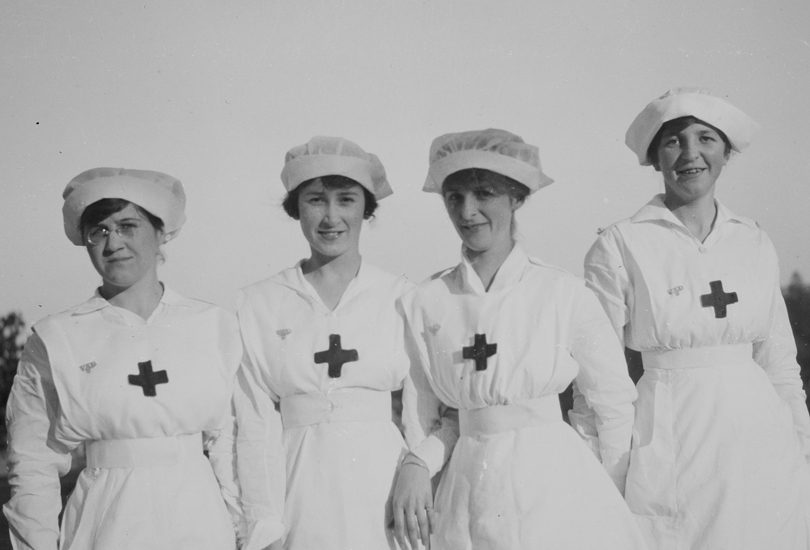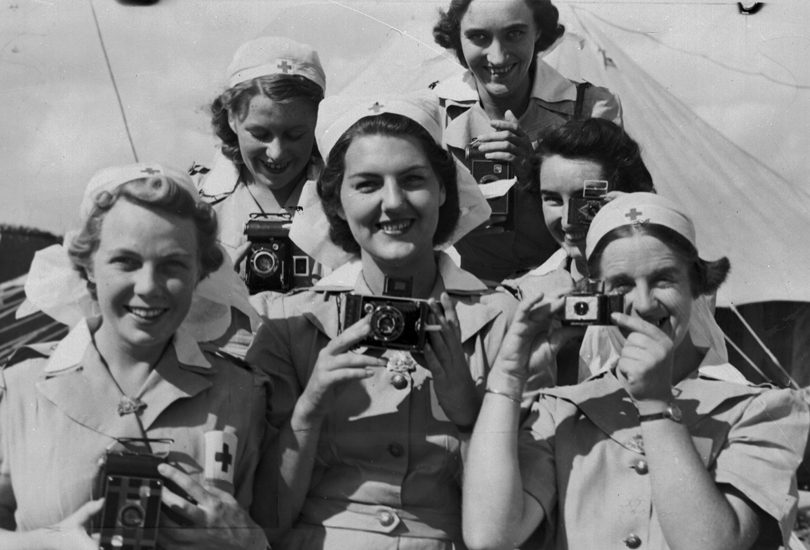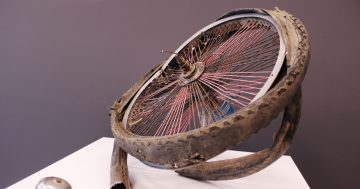
Nurse Lily Vockler on the cover of sheet music for The Red-Cross Nurse: March-Song and Chorus (Sydney: Joe Slater Publishing, 1914-1918). Image: nla.cat-vn1258829.
In the midst of a global health crisis, one of the greatest trials the modern world has faced, communities have turned their collective and appreciative gazes towards those who have been fighting on the front line: our doctors, nurses and allied health care professionals.
Across Australia and around the globe, people have been #clappingforcarers, preparing meals for those on the front line, realising just how vital health care professionals are in keeping the world safe.
Australia has a proud history of service in the health care profession and this International Nurses Day the National Library of Australia would like us to stop and consider a particular service, at the pinnacle of nursing that has spanned generations, the Australian Red Cross.

The Australian Red Cross was formed just after the outbreak of the First World War as a branch of the British Red Cross Society (‘Four Red Cross Nurses’ 1915). Photo: nla.cat-vn7760494.
One of the most recognised providers of care and relief, you would be hard pressed to find a person who has not been touched by the Red Cross, knowingly or not, through a blood transfusion, during an emergency or natural disaster, or through work with the organisation as a volunteer or staff member.
Celebrating their centenary in 2014, the Australian Red Cross was formed just after the outbreak of the First World War as a branch of the British Red Cross Society. Initially, the member-based organisation was viewed as one primarily for women and part of their contribution to the war effort.
Within months, the Australian Red Cross was a household name and became the premier wartime charity. Focusing on assisting the sick and wounded in war, including soldiers, their dependents and Allied civilians overseas, the Australian Red Cross played a vital role in providing medical equipment and supplies to military hospitals both in Australia and overseas.
In addition to those on the frontline, fondly known as the ‘Angels of Mercy’, there was an army of volunteers who knitted socks and balaclavas, sewed pajamas, packed parcels, raised funds and donated countless hours of unpaid labour for the duration of the war.
The Red Cross first assisted those on the battlefield and then civilians. It is one of the grand ideas of the nineteenth century. And it is one that has not only survived, but flourished, into the twenty-first century.
The ambitious nature and global reach of the Red Cross makes it all the more remarkable because, as we are coming to know now more than ever, the need for such an organisation has not diminished over time.

Nurses offer a friendly face when loved ones can’t. Photo: nla.cat-vn1891128.
Today, in Australia and around the world, millions of volunteers are, once again, mobilised to help respond to the new danger of the COVID-19 pandemic, and are working their hardest to support vulnerable members of the community in a variety of ways. Millions of nurses have answered the call, joining the fight against an invisible enemy.
As we continue to see footage from hospitals featuring nurses with grazes on their faces from their surgical masks, nurses who are continuing to serve their community while putting themselves at great personal risk, we must say thank you.
For centuries, nurses have aided in the recovery of the sick and cared for the dying. On this International Nurses Day, we pay tribute to those who have held hands and offered a friendly face when loved ones couldn’t.
The Australian Red Cross’ early history is illuminated by the collections of the National Library of Australia: in manuscripts, sheet music and poems, posters and maps. A selection of this material is available online. Search ‘RED CROSS’ at catalogue.nla.gov.au.
This article contains extracts from ‘The Australian Red Cross: 100 Years On’ feature article written by Professor Melanie Oppenheimer for The National Library of Australia magazine (June 2014).
The National Library is currently collecting ephemera relating to COVID-19. Visit the National Library of Australia for more information.





















